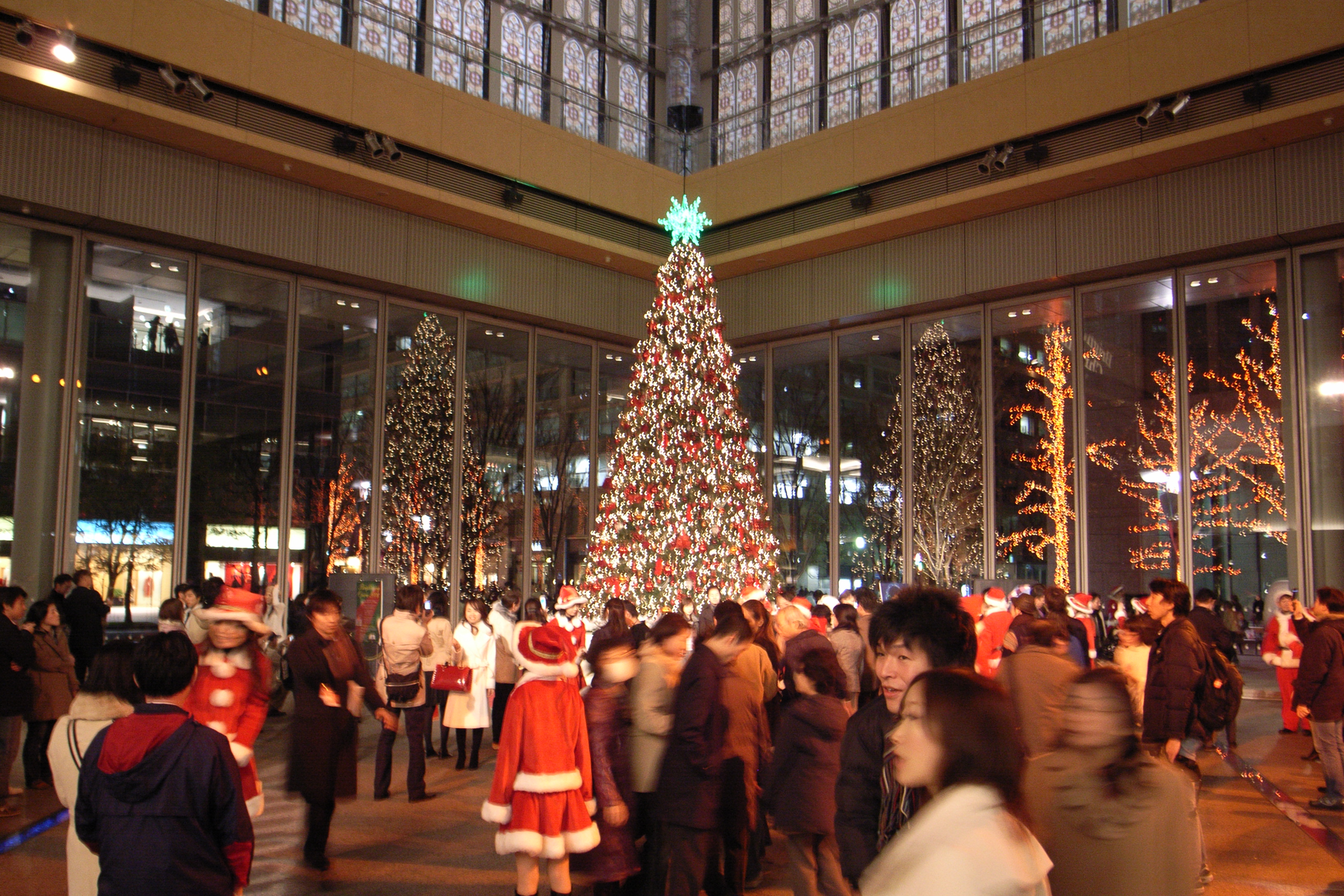What Are Five Places Where Christmas Is Illegal?
Explore the unique and surprising places where Christmas is illegal around the world, delving into the cultural, religious, and political reasons behind these bans in our comprehensive article.
Author:Raven NoirReviewer:Morgan MaverickDec 26, 2023753 Shares22.1K Views

Christmas is often hailed as "the most wonderful time of the year," a sentiment echoed in the classic song by Andy Williams. In many countries, the season is marked with vibrant decorations, joyful caroling, and an abundance of festive treats. However, this picture of Christmas cheer isn't universal. So what are some places where Christmas is illegal?
Where Is Christmas Illegal?
In some parts of the world, Christmas celebrations are restricted or outright banned due to various cultural, religious, and political reasons. Here, we explore five such places where Christmas takes on a very different meaning.
Tajikistan
In Tajikistan, a country bordered by Afghanistan, Kyrgyzstan, and Uzbekistan, the Christmas spirit is notably absent. Over the past decade, the nation has increasingly clamped down on festive celebrations. "The installation of a Christmas tree either living (felled wood) or artificial in schools and universities is not allowed," states a decree by the education ministry. This ban extends to many aspects of traditional Christmas festivities.
2013 marked a significant year in Tajikistan's approach to Christmas when Father Frost, the Russian version of Santa Claus, was banned from television. Alongside this, the use of fireworks, festive meals, gift-giving, and fundraising during the Christmas season were prohibited. This hardline stance isn't limited to Christmas; Halloween celebrations and even personal celebrations like birthdays face strict regulations, highlighting the country's stringent control over cultural expressions.
Brunei
In the small, oil-rich nation of Brunei, Christmas celebrations are similarly curtailed. Sultan Hassanal Bolkiah, in 2014, expressed concerns that celebrating Christmas "excessively and openly" could mislead the Muslim population of the country. As a result, Christmas celebrations are confined to privacy, away from public view. Even then, families are reportedly required to inform authorities about their festive plans.
The consequences for unauthorized Christmas celebrations in Brunei are severe. Individuals caught celebrating without permission face the possibility of a £16,000 fine, up to five years in prison, or both. This strict enforcement illustrates the country's commitment to maintaining its religious and cultural norms.
Saudi Arabia
Unlike Brunei and Tajikistan, Saudi Arabia has seen a gradual relaxation in its stance towards Christmas. Previously, the country prohibited any visible signs of Christmas celebration, adhering strictly to the lunar calendar. However, since Crown Prince Mohammed bin Salman's rise to power, some of these restrictions have eased.
Despite no official announcement reversing the ban, Christmas-related items like trees, baubles, and Santa hats are increasingly visible in local markets. "Christmas has been creeping into the country," as residents test the boundaries of what is permissible. Yet, many still adhere to the older, stricter rules, avoiding overt celebrations to not risk backlash.
China
China's relationship with Christmas is complex. Referred to as the "Festival of Shame" and "Western spiritual opium," the government has cracked down on the celebration, viewing it as an undesirable Western influence. This stance is part of the broader effort by the Chinese Communist Party (CCP) to limit outside influences while maintaining key globalmarket ties.
Though millions in China observe Christmas, the government denounces festive gatherings, particularly in specific zones like Wenzhou, where schools and public centers are forbidden from participating in Christmas activities. The CCP has also prohibited its members, government agencies, and universities from engaging in Christmas celebrations.
Xing Hang, an associate professor at Brandeis University, explains, "Government policy is essentially to ensure that churches put the party and state above the religion."
North Korea
In North Korea, Christmas as known to the rest of the world is virtually non-existent. The ruling regime, under Kim Jong-un, only allows tributes to its leaders and the ruling party. Christmas gatherings can lead to severe penalties, including imprisonment. In a striking deviation, North Koreans are encouraged to celebrate on December 24th, not in honor of Christmas Eve, but to commemorate the birth of Kim Jong-un's grandmother.
"The nation has banned 'any gatherings related to drinking, singing and other entertainment, and is strengthening control of outside information,'" reports South Korea's National Intelligence Service. This reflects the broader context of North Korea's tight control over its citizens' lives and the limited religious freedoms granted to them.
Conclusion
These examples from Tajikistan, Brunei, Saudi Arabia, China, and North Korea illustrate the diversity in how Christmas is perceived and celebrated globally. They remind us that cultural, religious, and political factors can significantly influence how a holiday, widely celebrated in many parts of the world, is observed – or not observed – in different countries.

Raven Noir
Author
Raven Noir is a captivating and enigmatic news reporter who unravels mysteries with a relentless pursuit of truth. Possessing an insatiable curiosity and an astute mind, Raven delves into the depths of complex stories, unearthing secrets that lie beneath the surface. With a masterful grasp of deduction and observation, Raven stands as a beacon of fearless investigation.
In the realm of journalism, Raven is known for his enigmatic presence, drawing people in with an aura of intrigue. Driven by an unwavering passion for unveiling the truth, Raven Noir continues to shed light on the darkest corners of society. Through captivating storytelling and unwavering determination, he challenges conventions and uncovers enigmatic secrets that lie just beyond the surface.

Morgan Maverick
Reviewer
Morgan Maverick is an unorthodox news reporter driven by an insatiable hunger for the truth. Fearless and unconventional, he uncovers hidden narratives that lie beneath the surface, transforming each news piece into a masterpiece of gritty authenticity. With a dedication that goes beyond the boundaries of conventional journalism, Morgan fearlessly explores the fringes of society, giving voice to the marginalized and shedding light on the darkest corners.
His raw and unfiltered reporting style challenges established norms, capturing the essence of humanity in its rawest form. Morgan Maverick stands as a beacon of truth, fearlessly pushing boundaries and inspiring others to question, dig deeper, and recognize the transformative power of journalism.
Latest Articles
Popular Articles